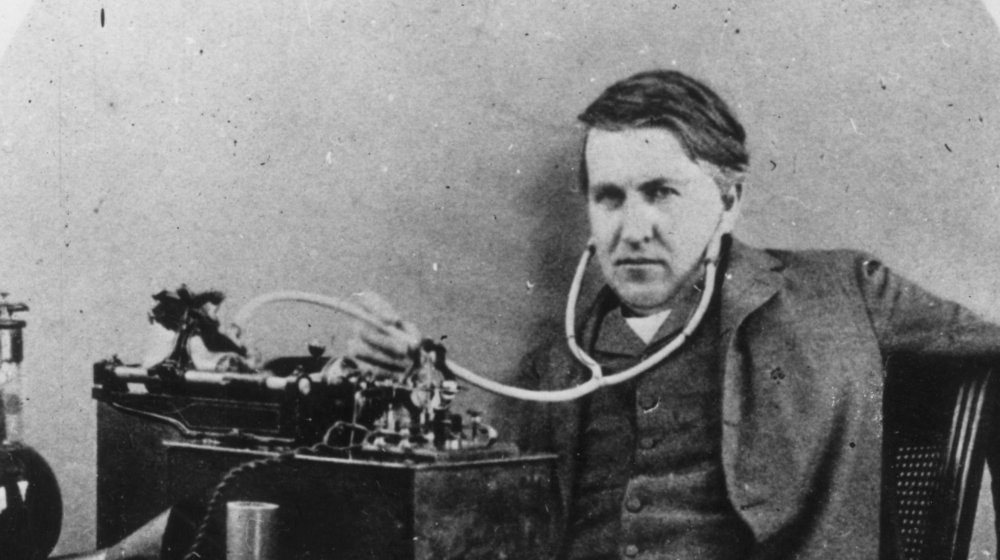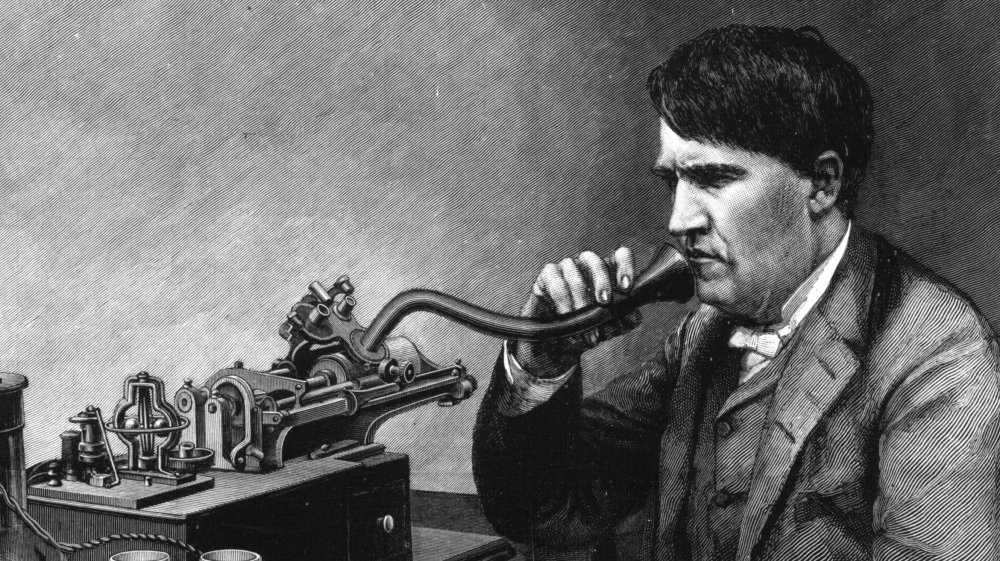The Real Reason Thomas Edison's First Invention Failed
Recent history has not been kind to Thomas Edison. Once remembered as a titan of creative thought, today he's become more or less synonymous with the corrupt underpinnings of American industrialism and man's capacity to dash his rivals' dreams, or go to New Jersey and electrocute an elephant. Everything is legal in New Jersey.
For all of his sins, Edison was a remarkable man possessed of an extraordinary mind. Thanks to his inventions and contributions, the world now has light bulbs, alkaline batteries, and those guys who refuse to listen to music unless it's on vinyl. But life wasn't always a dump truck full of success for the entrepreneur. On June 1st, 1869, the 22 year old Edison patented his very first invention, and it flopped. It just flopped around like an elephant with an electric generator attached to its feet.
The device was an automated voting machine, designed to streamline congressional procedure. Congress, it turns out, wasn't thrilled at the prospect.
The nays have it
The machine that Edison had created was brilliant, especially by 19th century standards. According to Rutgers, members of Congress would be provided with switches labeled "yes" and "no." Upon hitting the switch, their vote would be transmitted to a central recorder. The recorder would create a set of columns in metal type, and when all votes were in, a piece of specially treated paper would be pressed against the type, creating a hard copy of the votes tallied.
Exhibited to a committee of Congress, the invention was met with less than glowing reviews. The committee chairman reportedly told Edison that "if there is any invention on earth that we don't want down here, that is it." While the machine was cumbersome compared to modern designs, it was just too dang speedy for politicians in the 1800s. Mental Floss points out that the slow pace of one-by-one voting gave members of Congress much needed time to try and change their colleagues' minds in the eleventh hour. Edison's invention was never used, and he sulked off to help make sure that lightbulbs existed.

